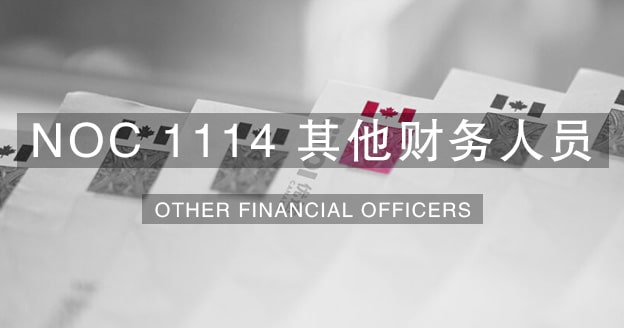Studying abroad at a young age has become a trend, and more and more children start studying abroad before they reach adulthood. Of course, the benefits of studying at a young age are obvious: it is easier to integrate into the local society and cultural environment, learning the native language is simpler, and opportunities for further studies are better. So, the question is, most underage children are incapable of self-care. Should parents let their children grow up independently or choose to accompany them? This article talks about the advantages and disadvantages of parents accompanying minor international students.
Pros and cons of parents accompanying minor international students
Can I get a visa for accompanying minor children Canada?
Canada does not have a specific visa category for parents accompanying minor international students, so parents who choose to accompany their children need to get a visitor visa. Under normal circumstances, Chinese citizens can obtain multi-entry visas for 1-10 years, which provides a certain degree of freedom, but only allows for a stay of up to 6 months each time. If you want to extend your stay in Canada, you need to apply for a visitor record. The parent may renew their visitor record accordingly for the same time period as the student's study permit; or it can be renewed up to the point the child reaches the legal age in their province (the legal age varies in different provinces, usually 18 or 19 years old).
Allowing children to focus more on learning and to experience a new life
Although many Chinese parents have deliberately fostered their children's independence from an early age - having their kids help around the kitchen, doing the dishes or washing the vegetables; these tasks merely train them for the "independence" they need in the future. There is still a huge gap between being able to handle simple household chores and having the skills to manage their own lives. After all, independent living is a great challenge for many university students, let alone studying at a young age.
Some parents may choose homestays or boarding schools that provide three meals a day, so they would not have to worry about their children starving. However, these options may be overrated. After all, surviving in a foreign country is not simply about having enough to eat and drink. If the child has never lived independently before, then he/she must make efforts to adapt to the English environment and also, the new living arrangement. The personalities and daily habits of the host family can be hard to predict. For the child, it would be double the challenge. Frustration and tension caused by interpersonal relationships in daily life can often be a burden heavier than the difficulties they have in their studies.
At this point, we can say that the advantages brought by parents accompanying minor students are clear - taking care of the child's diet, and more importantly, supporting the child emotionally and psychologically. Parents do not necessarily have to make any extra effort in their children's daily lives, because the mere company of loved ones can make children feel at ease. It helps them to adapt to the new environment naturally, and feel more at home in a foreign country. With this sense of security and comfort, children tend to be more confident. They will feel more comfortable opening up to others and expressing themselves, thus helping them experience and enjoy the new life.
Parents are still the best teachers for their children
Accompanying your children during their studies abroad is not just about being a nanny or a housekeeper. Parents still play the most important role of an educator in the process. Great care can ensure that children concentrate on studying at school and interact with people with confidence. So what roles do parents play outside of school? Naturally, they develop a new lifestyle with their children in the duration of their stay in the foreign country. The knowledge taught in schools cannot override the education at home, especially during the stages of elementary and secondary schools, when the important development of a child’s personality and character occurs. The presence of family often plays an important guiding role in the growth of children.
Parents may experience the life of studying abroad for their children
Being there to take care of your child means that he/she can concentrate on studying, which, of course, means that the child does not have to worry about taking care of him/herself. Therefore, it is an advantage brought on by parents accompanying their children studying abroad, but at the same time, the child also loses the opportunity to learn to live independently. Parents often want to ensure the well-being of their children, but sometimes experiencing difficulty is a direct opportunity for children to grow and breakthrough their boundaries.
Some children prefer boarding schools because of the freedom they provide. The variety of extra-curricular activities offered by North American schools are indeed worth trying. However, having parental care often means that the child "needs to be home before dinner." Parents and children should establish a tacit understanding. Otherwise, it is likely to provoke the child's hostile emotions.
Children and accompanying parents may experience cultural gaps
In general, parents who accompany young students often have limited English proficiency and face many communication barriers daily. In contrast, children's language ability will improve very quickly in an all-English environment. Schoolmates will often be of diverse ethnicities and backgrounds, but the local social relationships that the parents build are likely to be limited to just one ethnicity. Therefore, parents will often find it difficult to integrate into the parent groups when participating in parent-student activities at school. They often feel uncomfortable and out of place, as it is challenging to communicate naturally and smoothly. Similarly, adolescent children are often particularly sensitive to this situation, and barriers can quickly arise. Differences in English abilities can cause a deficiency in communication skills, and joining of particular social groups can result in differences in values. These differences accumulate over time and are likely to cause parents and children to become increasingly alienated
Because of this, parents must also consider how much they can open their minds to a new life when considering whether or not to accompany their children going abroad. They should consider their own difficulties before worrying about their children. Only if they can embrace a new life, can they explore a new world with their children.
Accompanying parents need sufficient financial support
The objective factor to be considered for accompanying your children studying abroad is, of course, the cost. Sending children to study abroad is a large investment, and accompanying your child means further increasing that cost. In addition, the accompanying parent needs a visitor visa during the child’s study period. They cannot find work and there is no income. This means that the parent is a full-time companion to their child in Canada. The child's tuition and the daily expenses of the family must be spent from the family’s savings.
Brief Summary
Whether parents should accompany their children studying abroad has always been a controversial topic, because there are indeed advantages and disadvantages, and it largely depends on the individual case and the original intention of studying abroad. Parents must ask their children's opinions when deciding whether or not to accompany them. If the child indicates that he/she wants to experience an independent life abroad, parents cannot forcefully follow them. Also, parents should think about their degree of preference for life abroad. After all, accompanying your child does not mean you are only responsible for the daily needs of the child. It is also a significant task for accompanying parents to establish their own life in a foreign country.





